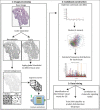Artificial intelligence and machine learning for early detection and diagnosis of colorectal cancer in sub-Saharan Africa
- PMID: 35418482
- PMCID: PMC9177787
- DOI: 10.1136/gutjnl-2022-327211
Artificial intelligence and machine learning for early detection and diagnosis of colorectal cancer in sub-Saharan Africa
Keywords: Artifiical Intelligence; COLORECTAL CANCER; SURVEILLANCE.
Conflict of interest statement
Competing interests: AGS has consulted for and received research funding from Exact Sciences. AR serves as member for Voxel Analytics and consults for Genophyll and Pact&Health. GHS is a founder of Anza Biotechnologies.
Figures




References
Publication types
MeSH terms
Grants and funding
LinkOut - more resources
Full Text Sources
Medical
